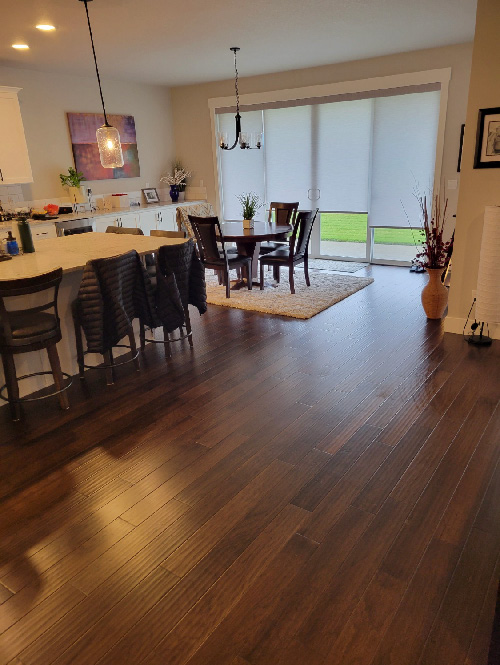Introduction
Ever feel like your home is a battleground against allergens? You’re not alone. For many, dust mites, pet dander, mold spores, and other pesky invaders create an uncomfortable living environment. But what if I told you that regular cleanings could drastically reduce these household allergens? In this article, we’ll dive deep into The Connection Between Regular Cleanings and Reduced Household Allergens, exploring why a cleaning service could be your best ally in the fight for a healthier home.
The Connection Between Regular Cleanings and Reduced Household Allergens
Regular cleanings can significantly reduce the presence of allergens in your home. But how does this work? When you engage a professional cleaning service, they typically follow a systematic approach that targets all areas where allergens thrive. Dusting surfaces, vacuuming carpets with HEPA filters, and deep cleaning upholstery are just some of the techniques used to minimize allergen concentrations.
Why Are Allergens a Problem?
Understanding Household Allergens
Household allergens are substances that can trigger allergic reactions in sensitive individuals. They range from common culprits like pollen and pet dander to less obvious offenders such as mold spores and household dust.
Health Effects of Allergens
Exposure to allergens can lead to various health issues including sneezing, runny noses, itchy eyes, and even severe asthma attacks. For those with respiratory conditions or weakened immune systems, the stakes are even higher.
The Role of Regular Cleaning
How Cleaning Reduces Allergen Levels
office cleaning serviceCleaning disrupts the life cycle of allergens by removing them from surfaces before they have a chance to circulate in the air. Dusting high surfaces eliminates particles that would otherwise settle on furniture or floors.
Frequency Matters: How Often Should You Clean?
While regular cleaning is key, frequency also plays a vital role. For households with pets or members who suffer from allergies, weekly cleanings may be necessary compared to bi-weekly for others.
Common Sources of Allergens at Home
Dust Mites: The Invisible Culprits
Dust mites thrive in warm, humid environments and are commonly found in bedding and upholstered furniture. These microscopic creatures produce waste products that can trigger allergic reactions.
Pet Dander: Love Them or Leave Them?
If you’re a proud pet owner, you’re likely familiar with pet dander – tiny flakes of skin shed by furry friends that can cause significant allergy symptoms.
Effective Cleaning Techniques
Vacuuming: The Power Tool Against Allergens
Using vacuums equipped with HEPA filters can trap tiny particles effectively. Ensure every nook and cranny is covered during your cleaning sessions.
Dusting Wisely: Tools of the Trade
Microfiber cloths are excellent for trapping dust without scattering it back into the air. Don’t forget about high surfaces—dust accumulates there too!
Professional Cleaning Services: A Smart Choice?
Benefits of Hiring a Cleaning Service
While DIY cleaning has its merits, employing a professional service often yields better results due to their expertise and specialized equipment designed for allergen removal.

How to Choose the Right Cleaning Service
Look for services offering tailored plans focused on reducing allergens specifically. Check customer reviews and ask about their methods!
Seasonal Considerations: Adjust Your Cleaning Routine
Spring Cleaning: An Allergen Assault
Spring brings blooming pollen which can exacerbate allergies; consider increasing your cleaning frequency during this time.
Winter Woes: Indoor Allergen Buildup
With windows shut tight during cold months, indoor air quality can decline rapidly; tackle dust accumulation more frequently.
Additional Strategies for Allergen Reduction
- Air Purifiers: Investing in HEPA air purifiers can dramatically improve indoor air quality. Humidity Control: Keeping indoor humidity levels below 50% helps prevent mold growth. Decluttering: More stuff means more places for dust to gather; consider minimizing clutter as part of your strategy!
FAQs About Regular Cleanings and Household Allergens
Can regular cleaning really make a difference in my allergies? Yes! Consistent cleaning reduces allergen accumulation significantly.
How often should I vacuum my home? Ideally once a week; however, if you have pets or severe allergies, consider more frequent vacuuming.
What’s the best type of vacuum for allergen control? Vacuums with HEPA filters are highly recommended as they trap fine particles effectively.
Is professional cleaning necessary? While not mandatory, professional services provide deep-cleaning capabilities that may be hard to achieve independently.
Can I do anything else beyond regular cleanings to combat allergens? Absolutely! Utilizing air purifiers and maintaining proper humidity levels also contribute greatly to allergen reduction.
Are there specific cleaning products I should use? Opt for hypoallergenic products when possible; they’re less likely to aggravate sensitivities while still being effective against dirt!
Take a look at the site hereConclusion
In conclusion, The Connection Between Regular Cleanings and Reduced Household Allergens cannot be overstated. By understanding how allergens operate within our homes—and taking proactive measures through consistent cleaning—you set yourself up for improved health outcomes and enhanced comfort in your living space. Whether opting for professional help or rolling up your sleeves yourself, remember that every little effort counts towards creating an allergen-free sanctuary! So grab those microfiber cloths—or call up your favorite cleaning service—and let’s kick those pesky allergens out once and for all!